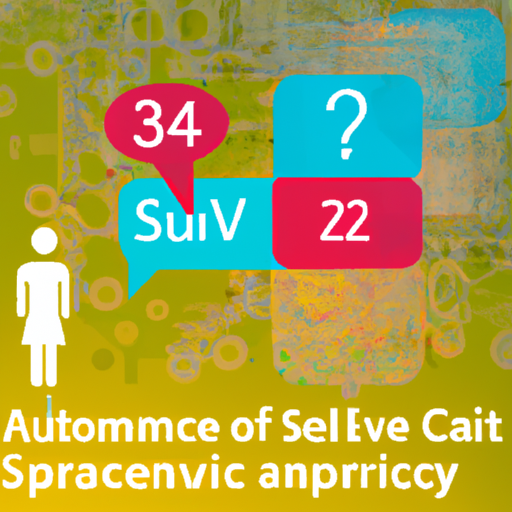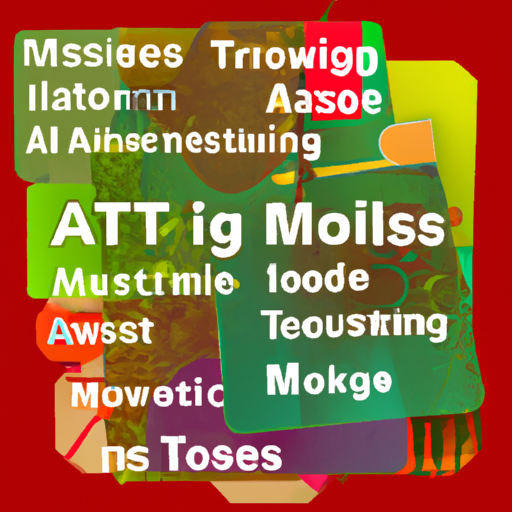Hey there! So, whether you’re knee-deep in the tech world or just a casual observer, you’ve probably heard that artificial intelligence (AI) is, like, totally taking over. As we edge closer to 2024, the AI landscape is getting more exciting and, to be honest, a bit overwhelming. But don’t worry, I’m here to break down the must-know AI trends for 2024 in a way that’s as engaging as your favorite TikTok scroll. Let’s dive in!
The Rise of Generative AI
Generative AI is like the ultimate creative sidekick. Imagine creating art, music, or even writing stories with just a few prompts. This tech is not just about novelty but about democratizing creativity. Think of it as giving everyone the power to be an artist or a storyteller.
Real-World Applications
Generative AI is already being used in fashion design, content creation, and even in Hollywood for scriptwriting and special effects. By 2024, we expect it to be a household name. Companies like OpenAI and Google are leading the charge, making these tools accessible to the masses.
How It Impacts You
Whether you’re a marketer looking to craft compelling ad copy or a teacher trying to engage students with creative projects, generative AI can be your new bestie. Plus, it’s a great tool for small businesses to create high-quality content without breaking the bank.
AI in Healthcare: A Game Changer
AI in healthcare is like having Dr. Strange on your medical team. It’s all about precision and speed, helping professionals diagnose and treat with superhuman accuracy.
Breakthroughs to Watch
- Predictive Analytics: AI can analyze patient data to predict potential health issues before they become serious.
- Personalized Medicine: Tailoring treatments based on individual genetic profiles is becoming more mainstream.
According to a study by Forbes, AI in healthcare is projected to be worth over $45 billion by 2026, indicating a trend that’s only going to grow.
Addressing Concerns
Of course, with great power comes great responsibility. Privacy concerns and ethical considerations are at the forefront. Experts suggest robust data protection laws and transparent AI models as solutions.
AI-Powered Automation
Automation is like the unsung hero of AI, quietly revolutionizing industries. It’s not just about replacing human tasks but enhancing them.
Industries on the Forefront
- Manufacturing: Robots and AI working together for efficiency.
- Finance: AI-driven trading and fraud detection.
- Customer Service: Chatbots that actually understand you (finally!).
McKinsey reports that automation could raise productivity growth globally by up to 1.4% annually. That’s huge!
Practical Tips for Businesses
For businesses looking to dive into AI automation, start small. Identify repetitive tasks that consume time and explore AI tools that can help. Remember, it’s about enhancing your team’s capabilities, not replacing them.
Ethical AI: Navigating the Moral Maze
AI ethics is like the latest plot twist in our tech story. It’s all about making sure AI doesn’t go rogue and stays beneficial to humanity.
Key Considerations
- Bias in AI: Ensuring algorithms are fair and unbiased.
- Data Privacy: Protecting personal data and ensuring transparency.
Industry leaders like IBM and Microsoft are actively working on frameworks to ensure ethical AI practices. Their efforts aim to instill trust and reliability in AI systems.
What You Can Do
Stay informed and advocate for transparency in AI tools you use. If you’re in the tech field, consider contributing to open-source projects focused on ethical AI.
AI in Education: Redefining Learning
AI is like that cool teacher who makes every class interesting. By 2024, AI in education is expected to personalize learning experiences and make education super engaging.
Innovations and Benefits
- Adaptive Learning: AI platforms that adjust to a student’s learning pace.
- Virtual Tutors: 24/7 assistance for students, making learning accessible anytime.
A report from eLearning Industry suggests that AI in education could improve learning outcomes by 30%. That’s a game-changer!
Challenges and Solutions
The main challenge is ensuring equitable access to AI tools. Educators are working on partnerships with tech companies to make these tools available in underfunded schools.
Conclusion: Embrace the AI Wave
Alright, fam, we’ve covered a lot! From generative AI to automation and AI ethics, 2024 is shaping up to be a pivotal year for artificial intelligence. The key takeaway? AI is not just a tech trend—it’s a movement that’s reshaping our world. Whether you’re a business owner, student, or just an AI enthusiast, staying informed will help you ride this wave effectively.
So, what’s next? Keep learning, stay curious, and don’t be afraid to experiment with AI tools. Let’s embrace the future with open arms because, honestly, the possibilities are endless. If you found this guide helpful, share it with your squad or drop a comment with your thoughts. Let’s keep the conversation going!
Frequently Asked Questions
What are the top AI trends to watch in 2024?
The key AI trends for 2024 include the rise of AI-powered automation in business processes, advancements in natural language processing, and improvements in AI ethics and governance frameworks. Businesses should focus on adopting AI tools that enhance productivity and streamline operations. For example, platforms that integrate AI for customer service or data analysis can provide a competitive edge. Consider exploring solutions like IBM Watson and Google AI for comprehensive AI applications.
How can businesses leverage AI trends in 2024 to increase efficiency?
Businesses can leverage AI trends by automating repetitive tasks, enhancing data-driven decision-making, and personalizing customer interactions. AI tools like UiPath for robotic process automation (RPA) and Salesforce Einstein for customer relationship management (CRM) can significantly boost efficiency. Begin by identifying processes that can benefit from automation and explore AI solutions that fit your industry needs.
What are the potential challenges of implementing AI in 2024?
Implementing AI in 2024 may come with challenges such as data privacy concerns, ethical implications, and the need for skilled personnel. To mitigate these issues, businesses should invest in AI governance frameworks and upskill employees through AI training programs. Solutions like Microsoft Azure AI offer robust security features, while Coursera provides courses to enhance AI skills and knowledge.
How will AI trends impact the job market in 2024?
AI trends in 2024 are expected to reshape the job market by automating routine tasks and creating new roles focused on AI management and development. While some jobs may become obsolete, there will be increased demand for AI specialists, data scientists, and machine learning engineers. Professionals should consider acquiring AI-related skills through platforms like LinkedIn Learning to stay relevant.
Which industries will benefit the most from AI advancements in 2024?
Industries such as healthcare, finance, and retail are poised to benefit significantly from AI advancements in 2024. AI can enhance diagnostic accuracy in healthcare, improve fraud detection in finance, and personalize shopping experiences in retail. Companies should explore industry-specific AI solutions like IBM Watson Health for healthcare and Amazon Web Services for retail innovations.




